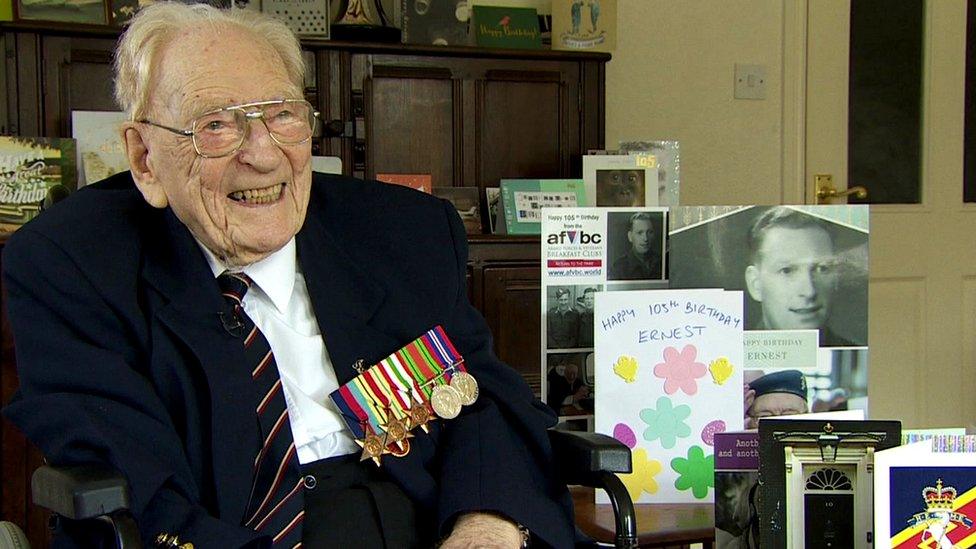Blue plaque unveiled for courageous WW2 soldier
- Published
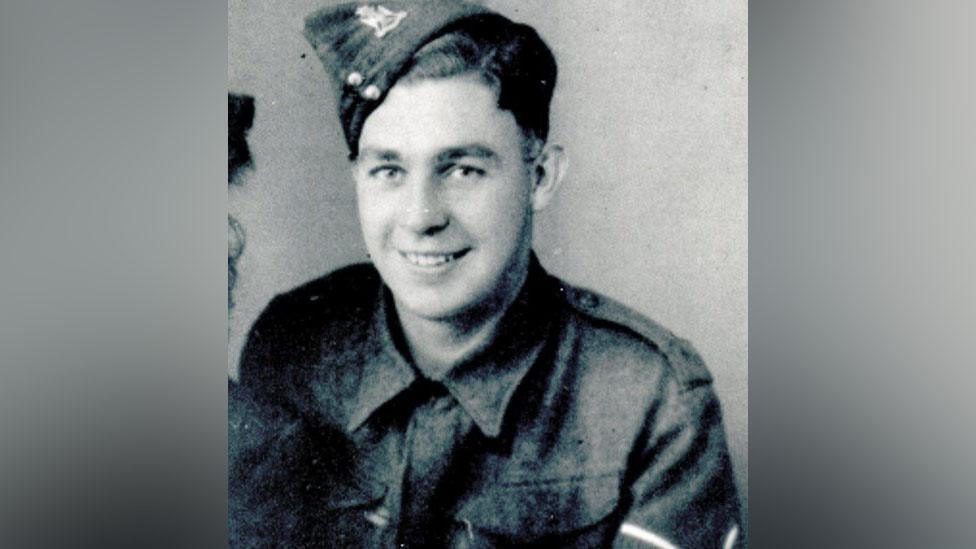
Sergeant Maurice Rogers was posthumously awarded the Victoria Cross for his actions
A "brave and courageous" soldier killed in World War Two has been honoured with a blue plaque at his birthplace.
Sergeant Maurice Rogers, of the 2nd Battalion Wiltshire Regiment, was born in Bristol in 1919.
He was killed during the Battle of Anzio in 1944 and posthumously awarded the Victoria Cross for his bravery. He was also a recipient of the Military Medal.
The plaque was unveiled on Brighton Road, in Redland, Bristol on Wednesday.
Distant cousin of Sgt Rogers, Gillian Deery, 48, from Marlborough, said: "It's amazing… you don't think you've got anything in your family… [then] you hear you've got someone who's as brave and courageous as he was with the Victoria Cross.
"I'm so proud to be part of the family and for my grandson to be here today and see this… it's very important to keep it as a family legacy."

Gillian Deery (left) and Ellen Hampshire said they are "honoured and proud" of distant relative Sgt Rogers achievements
Former soldier and historian Dr John Black studied the life of Sgt Rogers after first learning of him in 1960 as a cadet in the Wiltshire Army Cadet Force.
When he found there was no memorial to him in Bristol he approached the Bristol Civic Society with the idea of recognising Sgt Rogers with the plaque.
He said: "When I came to Bristol as a student in 1979 I looked for any memorial to Sgt Rogers and found none... [which is] sort of a gap in the city's history."
Dr Black explained that Sgt Rogers enlisted as a band boy into the Wiltshire Regiment aged 14 and gradually progressed through the ranks.
In May 1940, he took part in the evacuation from Dunkirk and by 1941 he was a corporal in the Carrier Platoon.
On 1 August 1943, he was ordered, with his platoon, to a reconnaissance of a German-held airfield at Gerbini.
His actions there were recognised with the Military Medal.
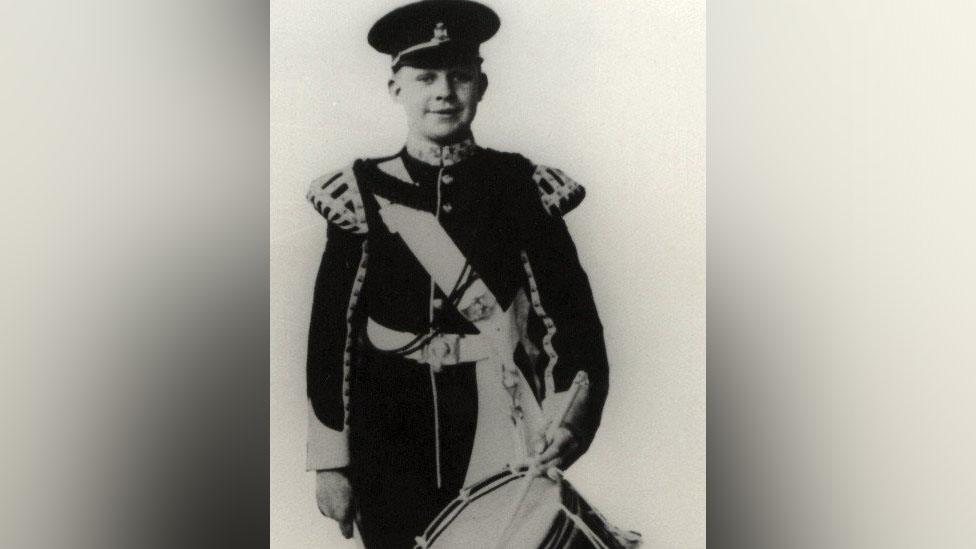
Sgt Rogers enlisted into the Wiltshire Regiment aged 14 as a band boy
In 1944, Sgt Rogers was at the Battle of Anzio in Italy and on 3 June the Carrier Platoon found themselves held up by enemy wire under heavy machine gun fire.
He managed to get through the wire on his own and with his Thompson submachine gun and grenades single-handedly destroyed two machine gun nests.
He was wounded in the leg but carried on and assaulted a third machine gun nest. He was shot and killed as a result.
It was a key action that allowed his platoon to finish their attack and the Allies to advance on Rome.
Sgt Rogers was posthumously awarded the Victoria Cross for his actions that day.
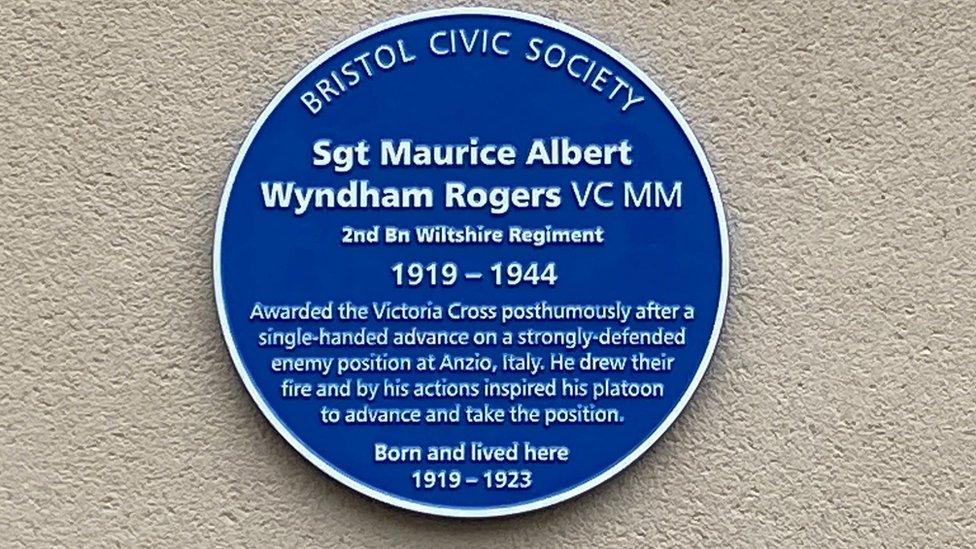
The plaque was unveiled on Brighton Road, in Redland, Bristol on Wednesday
Dr Black said he was "very happy" that Sgt Rogers was now being "celebrated" in the city where he was born.
Sgt Rogers medals now reside at the The Rifles Berkshire and Wiltshire Museum.

Sgt Rogers was awarded the Victoria Cross, the Military Medal, the 1939/45 Star, the Italy Campaign Medal, the British War medal and the Defence Medal

Follow BBC West on Facebook, external, Twitter, external and Instagram, external. Send your story ideas to: bristol@bbc.co.uk , external
Related topics
- Published27 April 2023
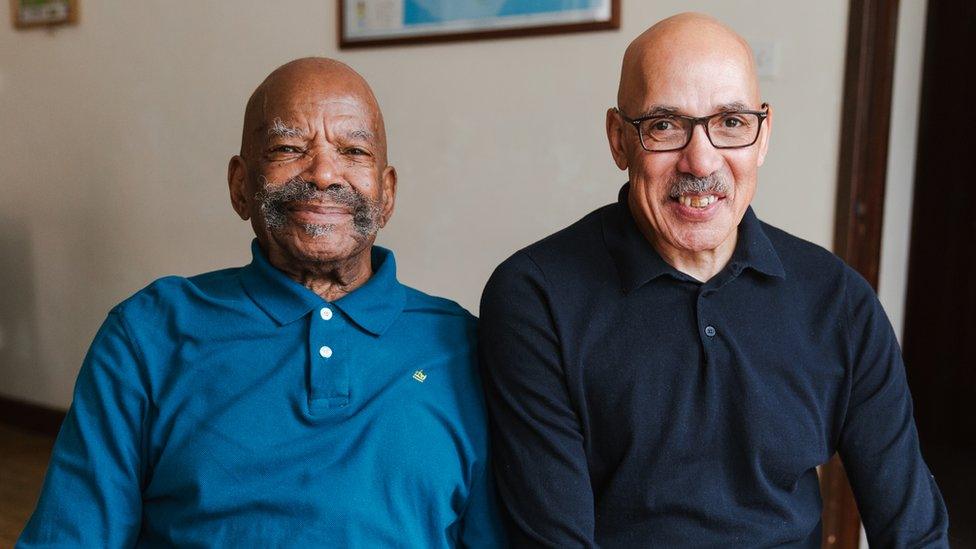
- Published25 April 2023

- Published25 April 2023
